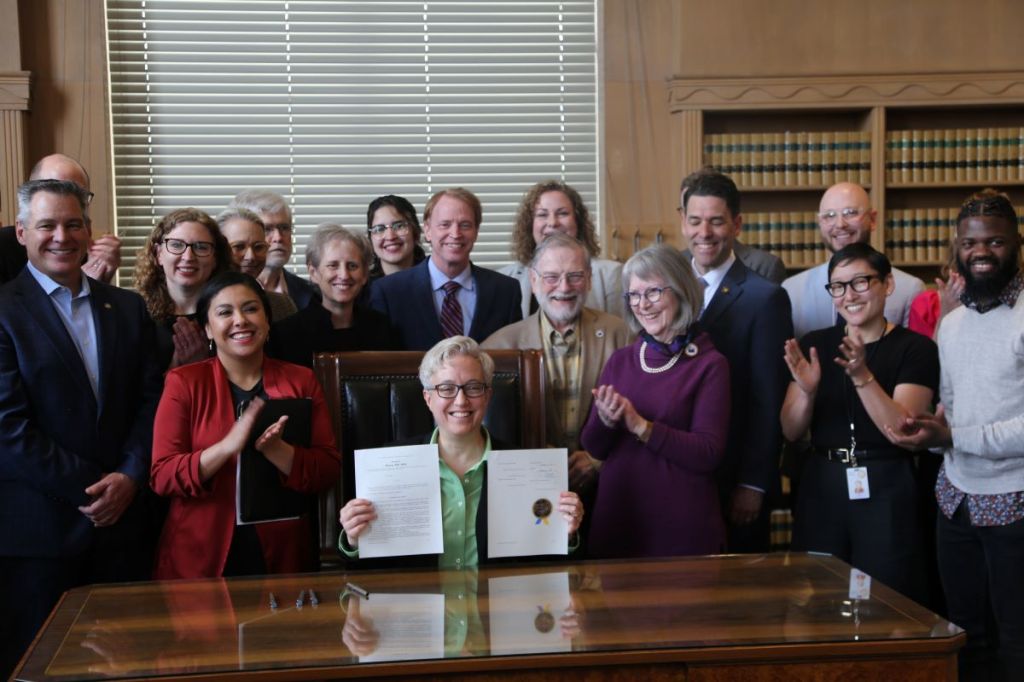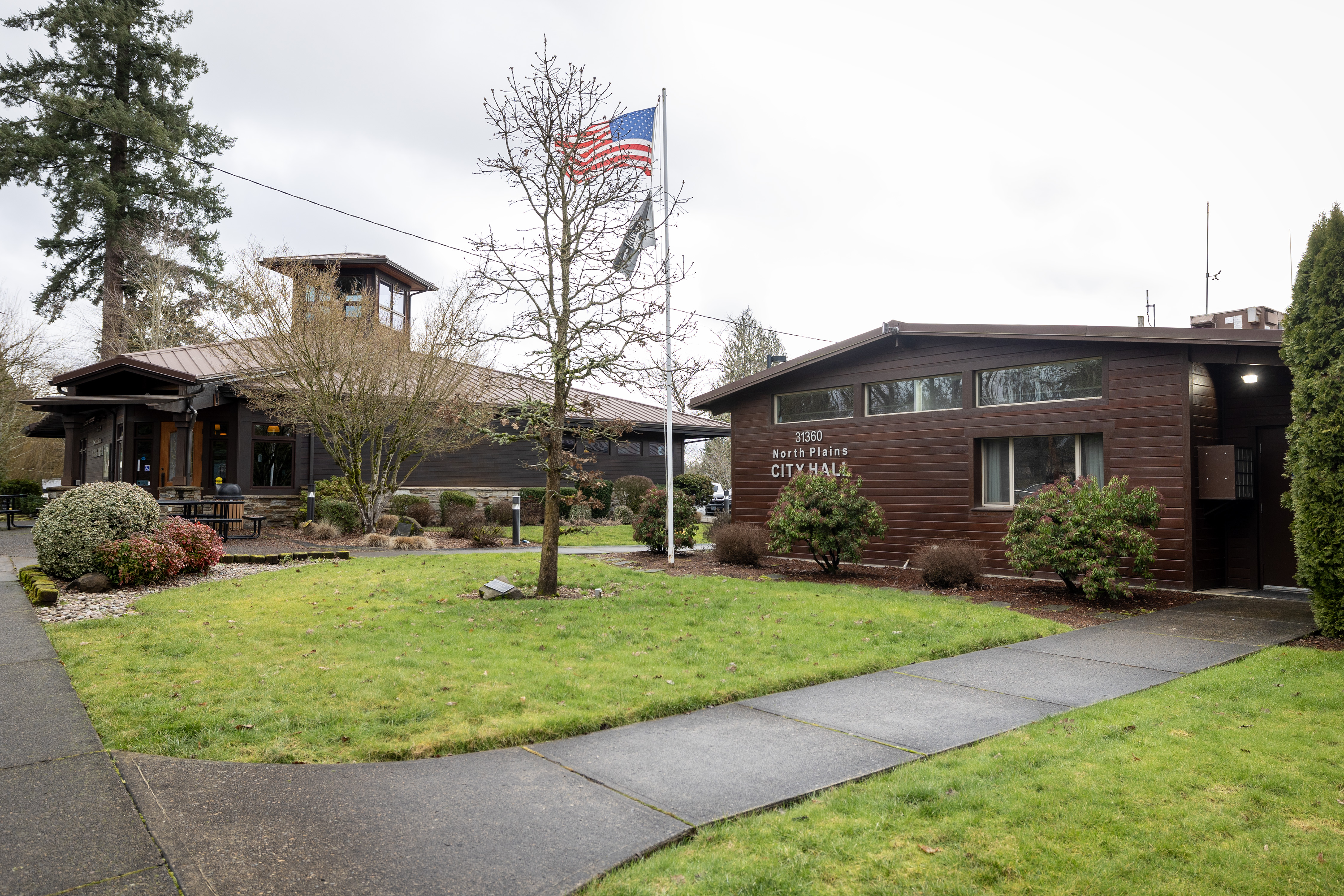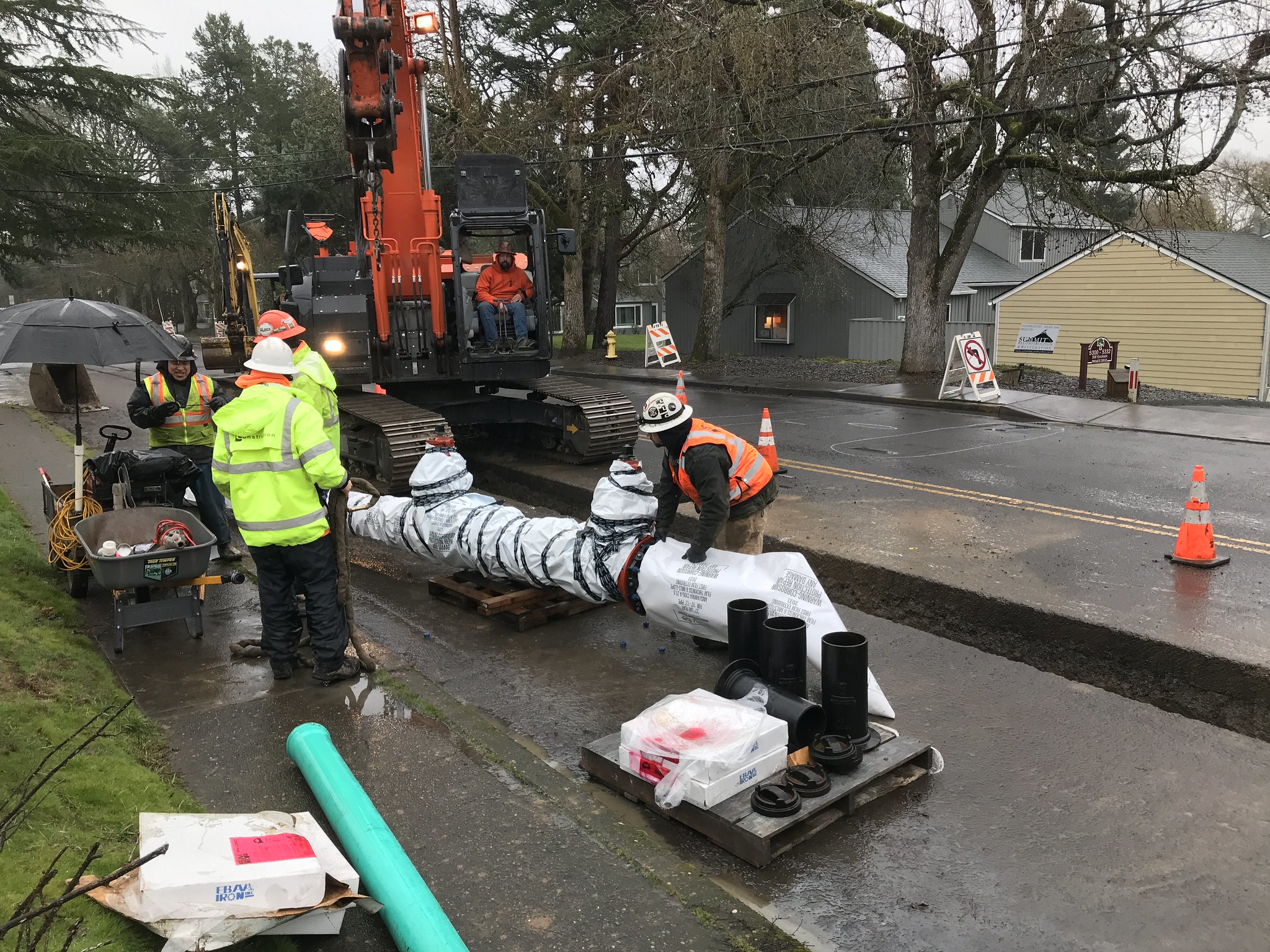Lawmakers, Secretary of State back delaying 2024 Oregon campaign finance law from taking effect
Published 6:36 am Wednesday, June 25, 2025

- Gov. Tina Kotek is joined by mix of lawmakers and advocates for the signing of a campaign finance bill in 2024. Most states limit how much money any person or group can give to a candidate. Oregon is an outlier but a law taking effect in 2027 would change that, limiting campaign donations and requiring more donor data to be disclosed. Now, the law could be delayed. (Courtesy of the governor’s office)
An unremarkable, technical fix bill could be used to delay the state’s 2024 campaign finance law limiting contributions and requiring more disclosure from donors
Oregon’s historic 2024 campaign finance law meant to end million-dollar contributions and provide more transparency about political donors could be delayed for several election cycles if a previously under-the-radar bill passes before the legislative session ends.
House Bill 3392 started as a proposal of technical fixes to House Bill 4024 — the historic campaign finance law passed by the Legislature last year and that is supposed to take effect in 2027.
House Bill 3392 will get its first hearing Wednesday at 8 a.m., less than 24 hours after any actual bill language was posted to the Oregon Legislature’s website for the public to review. It comes in the form of an amendment posted late Tuesday afternoon by House Minority Leader Christine Drazan, R-Canby, that would delay implementation of the 2024 campaign finance law until 2031.
Most states limit how much money any person or group can give to a candidate, leaving Oregon as an outlier. Wealthy people and well-funded organizations have spent millions on recent races — Oregon’s richest man, Nike cofounder Phil Knight, has personally given more than $11.6 million to candidates and campaigns in the past five years, with $1.5 million directly to Drazan’s unsuccessful 2022 campaign for governor.
The campaign finance Wild West was poised to end in 2027, after lawmakers, labor unions and business groups wary of competing measures that could go to the ballot scrambled in the 2024 legislative session to craft a compromise. Advocates for the 2024 campaign finance law said they feel betrayed.
“We appear to be confronted with a secret, literally last-minute backroom deal to avoid all campaign contribution limits — and requirements for disclosure of the sources of campaign funds — until 2031, if not forever,” Jason Kafoury, an attorney and leader at Honest Elections Oregon, said in an email. “This is against what the vast majority of Oregonians have voted for at every opportunity. We urge Oregonians to demand that their legislators not vote to dismantle contribution limits and disclosures of top donors.”
The 2024 measure, scheduled to take effect in 2027, will cap individual contributors at giving candidates $3,300 per election — or $6,600 to a candidate who runs in both the primary and general elections. Membership organizations, such as labor unions, could give up to $26,400 per two-year election cycle to statewide candidates and less to legislative candidates.
Drazan’s amendment, posted to the legislative website shortly before 3:30 p.m. Tuesday, wouldn’t change limits but would delay them until 2031 — after the 2030 gubernatorial election. As of Tuesday evening, it was the only proposed amendment.
Drazan is not alone in wanting to delay the bill. Oregon Secretary of State Tobias Read wrote to her and other House and Senate leaders from both parties on June 19 to recommend they either delay the law from taking effect or ensure that the Legislature right now provides needed investment in IT, outreach and enforcement staff to implement it by 2026. Read wrote that “successful implementation will require perfect conditions.”
“We believe the current timeline in the law is the biggest risk to the success of the project,” he added.
As a candidate for secretary of state last year, Read, then the state treasurer, told the Capital Chronicle his work convincing the Legislature to hire more Treasury employees proved he had the experience necessary to oversee the transition to campaign finance limits ahead of the 2028 election.
Tess Seger, a spokesperson for Read, said he did not work with Drazan on her amendment.
“Secretary Read laid out the risks of moving forward with implementation as is, timeline is just one of them,” she said. “Whether the Legislature and people of Oregon are willing to accept those risks or they want to step in and make some changes to give this program a better shot at success is a decision for them to make.”
Shortly after this article published, Samuel Herscovitz, a spokesperson for the House Republicans, said in an email that Drazan’s amendment was a response to Read’s note and concerns about timing that was sent to her and other legislative leaders. Drazan’s amendment “is responsive to that concern and will help achieve success for the program,” Herscovitz wrote.
House Speaker Julie Fahey, D-Eugene, and House Majority Leader Ben Bowman, D-Tigard, and chair of the House Rules Committee that will consider the bill, did not respond to questions or requests for comment from the Capital Chronicle by Tuesday evening. Fahey’s chief of staff Scott Moore, who was heavily involved in negotiations over the technical fixes to House Bill 3392 in recent months, also did not respond to calls, emails or texts.
The fixes
The technical fixes that leaders at Honest Elections Oregon requested were mostly clarifying or providing legal definitions that hadn’t been included in the 2024 bill, like the definition of an “election cycle” and using uniform and easily understandable terms to describe contribution limits.
“It shows profound disrespect for voters to propose a massive destruction of the campaign finance law 17 hours before the only public hearing on it, and disregarding all of the very, very detailed input we have given to the legislature on how to fix any problems with the law that was passed last year,” said Dan Meek, an attorney and advocate at Honest Elections.
Read in his letter to lawmakers included challenges he and his office’s rulemaking advisory committee have confronted with the 2024 law. Most of them involved conflicts among committee members around definitions and what deserves to be publicly shared information related to political contributors. Read also said that the Oregon Elections System for Tracking and Reporting, or ORESTAR, was not sophisticated enough to present newly required contributor data, and that it would be expensive to update.
The committee includes Louis De Sitter, a lobbyist for the Oregon Education Association; Preston Mann, a lobbyist for Oregon Business and Industry; Kate Titus, executive director of Common Cause Oregon; Jessica Miller, a former treasurer for several candidates and political action committees; Lamar Wise, a lobbyist for the American Federation of State, County and Municipal Employees, or AFSCME; and Ira Cuello-Martinez, a lobbyist for Pineros y Campesinos Unidos del Noroeste, or PCUN.
Titus said the group disagreed about definitions, mostly between labor and industry representatives, but the bigger delay was Read taking on a new job and a huge new campaign finance reform task that should have been started by his predecessor.
The campaign finance bill passed in March 2024, but former Secretary of State LaVonne Griffin-Valade left its implementation to Read, Titus said.
“I think it’s unfortunate that the secretary of state needs more time for implementation, but I’m sympathetic to the situation that they’re in, and want them to be able to get it right,” she said. “But they certainly don’t need three or four years more. They’ve already had a year since the bill was passed.”





